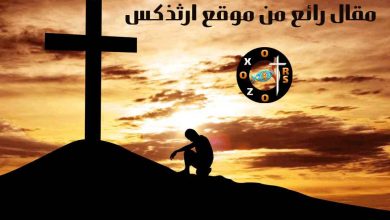الْباٌباٌُ السَّادِسَ عَشَرَ
الْباٌباٌُ السَّادِسَ
عَشَرَ
16. ثاؤناس
الوطن الأصلي | الأسكندرية تاوونا 2 كيهك – 27 نوفمبر 282 للميلاد 2 طوبه 18 للشهداء – 28 ديسمبر 301 للميلاد 19 سنة و شهرا واحدا الدومينيكوم الديونيسي ثم كنيسة بوكاليا كاروس و نيمريانوس و |
+ كان
هذا القديس عالماً تقياً وديعاً رقيقاً محباً للجميع حتى أنه تمكن من تشييد كنيسة
بالإسكندرية على اسم البتول العذراء والدة الإله إذ أن المؤمنين كانوا حتى زمانه
يصلون ويقدسون فى البيوت والمغائر خوفاً من غير المؤمنين.
+ وفى
زمانه ظهر رجل اسمه سبيليوس كان يعلم أن الآب والابن والروح القدس اقنوم واحد.
فحرمه وأبطل قوله بالبرهان المقنع.
+
ولما أكمل سعيه تنيح بسلام بعد أن أقام على الكرسى تسع عشرة سنة. وتعيد الكنيسة
بنياحته فى اليوم الثانى من شهر طوبه.
نياحة
البابا ثاؤناس ال16 ( 2 طوبة)
في مثل هذا
اليوم من سنة 300 م تتيح القديس ثاؤنا بابا الإسكندرية السادس عشر وكان هذا القديس
عالما تقيا وديعا رقيقا محبا للجميع. بروح المودة واللطف تمكن من تشييد كنيسة
بالإسكندرية علي اسم العذراء البتول والدة الإله. إذ أن المؤمنين كانوا حتى زمانه
يصلون ويقدسون في البيوت والمغائر خوفا من غير المؤمنين الذين ظل يلاطفهم لينال
رغباته وقد رد كثيرين منهم إلى الإيمان بالسيد المسيح وعمدهم. وقد عمد في السنة
الأولى من رياسته القديس بطرس الذي خلفه علي كرسي مار مرقس وهو البابا السابع عشر
وقد قيل انه رسمه اغنسطسا وهو لم يزل بعد في الخامسة من عمره ثم رقاه شماسا في
الثانية عشرة وقسا في السادسة عشرة. وفي زمان هذا الأب ظهر بالإسكندرية رجل اسمه
سبيليوس كان يعلم أن الأب والابن والروح القدس إقنوم واحد. فحرمه وابطل قوله
بالبرهان المقنع ولما اكمل سعيه تنبح بسلام بعد ان أقام علي الكرسي تسع عشرة سنة.
صلاته تكون معنا امين
V ثيؤناس البابا السادس عشر
خلف
البابا مكسيموس سنة 282م على الكرسي المرقسي، ي، وكان من قسوس الإسكندرية المشهود لهم
بالتقوى مع العلم.
إذ
كان الجو مملوء سلامًا قام البابا ثاؤنا بإقامة أول كنيسة بالإسكندرية بعد
المرقسية، وهي كنيسة والدة الإله العذراء مريم.
بعد
عهده قام والي الإسكندرية أشيلاوس بالتمرد على دقلديانوس في بدء حكمه، فحاصر
الإمبراطور المدينة وهزمها بعد ثمانية أشهر، فدك أسوارها وأذاق المصريين العذاب.
بعد
عدة شهور استقر السلام فأرسل ثيؤناس رسالة إلى لوقيان كبير أمناء القصر
الإمبراطوري Praepositus cubiculariorum، نُشرت في القرن السابع عشر بواسطة D’Achery مترجمة عن اليونانية، كما أورد القس منسى يوحنا فقرات منها، إذ
قال:
[ولما
تولى القيصر ديوكلتيانوس عرش رومية ادخل في معيته عددًا كبيرًا من الأقباط
المسيحيين فأرسل إليهم هذا البطريرك رسائل يأمرهم فيها أن يقوموا بواجبهم وأن
يميزوا أنفسهم كمسيحيين عن المواطنين الوثنيين بأعمالهم الصالحة وسيرتهم الطيبة.
فمن
ذلك رسالة إلى لوسيان ناظر بيت الملك وهو موظف مسيحي ارتقى إلى رتبته بعد تملك
ديوكلتيانوس بقليل يقول له:
“إن
الراحة التي تتمتع بها الكنيسة الآن تعزي إلى سبب واحد فقط هو سلوك المسيحيين
الحسن وأعمالهم الممدوحة التي تضيء كالشمس في رابعة النهار ينعكس ضوءها أمام أعين
الكفرة والملحدين فتبهر أبصارهم وبذلك يتمجد أبونا الذي في السماوات.
أما
غرضنا الذي نرمي إليه والغاية القصوى التي نسعى خلفها هي أن نكون مسيحيين فعلاً لا
بالاسم فقط وأن نعمل أعمال المسيحيين الحقيقيين، لأنه إذا كنا نطلب مجد أنفسنا
الذاتي فنكون كمن يطلب شيئًا تافهًا لا فائدة منه. فإذًا يجب على كل مسيحي أن يهتم
بمجد الله الآب وبمجد الابن الذي سُمر لأجلنا على خشبة الصليب وفدانا بدمه فداء
أبديًا لا يُقيَّم بذهب أو بفضة.
فلذلك
أيها العزيز لوسيان أريد أن لا يُعرف عنك التباهي والفخر لأنك أهديت كثيرين من
خدمة البلاط الملكي إلى معرفة الحق وأدخلتهم في حظيرة المسيح، بل بالأحرى تشكر
الله الذي اختارك آلة نافعة للبنيان، وجعلك واسطة خير لنفع الآخرين وأعطاك نعمة في
عيني مولاك حتى تمكنت من نشر كلمة الخلاص وإذاعة معرفة فادي المسيحيين وذلك لمجد
اسمه وخلاص الكثيرين”.
وأوصى
كافة أمناء بيت الملك المسيحيين فقال:
“إن
الله ينهاكم عن أن تبيعوا للآخرين شيئًا من متعلقات القصر خلسة أو تأخذوا رشوة ولا
تقولوا للإمبراطور كلامًا ضد الحق.
ابتعدوا
عن الطمع والجشع اللذين يتمسك بهما الوثنيون لا المسيحيون واعلموا أن الربح
القبيحٍ والغشٍ هما صفتان لا تلائمان من قَبِل المسيح. فعولوا على الاقتداء به،
ذاك الذي كان فقيرًا ومعدمًا. لا تتكلموا بشر فيما بينكم ولا تخرج كلمة قبيحة من
أفواهكم بل لتكن كل أعمالكم مقرونة باللطف والتأدب مع العدل والحق، بذلك يتمجد اسم
ربنا وإلهنا يسوع المسيح فيكم وفي أعمالكم.
تمموا
واجباتكم التي أسندت إليكم بخوف من الله وبمحبة للإمبراطور وبغاية الدقة والاجتهاد
واعتبروا أن الأوامر التي تصدر لكم من مولاكم الذي لم يسيء إلى أحد من رجال الله
كأنها صادرة من الله نفسه لأنه مُقام منه ولم يتقلد السيف باطلاً. وأخيرا يا
أبنائي الأعزاء البسوا الصبر كرداء وتمنطقوا بالفضيلة وامتلئوا بالرجاء والإيمان
والمحبة”.
ثم
أرسل إلى أمين الخزانة الخاصة يأمره بأن يتحلى بالأمانة ويصرف بدقة. وكتب لأمين
الملابس يوصيه بملاحظة الترتيب والنظام وختم كلامه بقوله:
“وعلى
الأمين أن يفعل كل هذا بتواضع وطول أناة لكي يتمجد اسم المسيح حتى في مثل هذه
الأعمال القليلة الأهمية”. وأوصى أمين المكتبة بأن يحسن تنظيمها ويجدّ في نسخ
ما بها من الكتب الهامة وأن لا يفتأ يذكر أمام القيصر عظيم قدر الترجمة السبعينية
للكتاب المقدس وأن يمزج كلامه مع القيصر بشواهد من سيرة المسيح”.
وكان
في عهد هذا البطريرك كاهن قديس لم يُرزق بنسل يدعى ثيودوسيوس وحدث أن امرأته صوفية
شاهدت في الكنيسة يوم عيد الرسولين بطرس وبولس أولاد المسيحيين يُقدمون إلى المعمودية
فانكسر قلبها ورجعت إلى البيت حزينة النفس وطلبت من الله بلجاجة أن يمن عليها
بنسلٍ. وفي ليلة ذلك اليوم شاهدت رؤيا في نومها وإذا بشخصين وقفا بها وأخبراها أن
طلبتها أجيبت وسترزق ولدا وأمراها أن تذهب باكرًا إلى البطريرك وتخبره بذلك. فلما
جاء الصباح أخبرت زوجها بالأمر وانطلقت إلى البابا ثاؤنا وأعلمته بما جرى فباركها
وصرفها بسلام. وما أتت السنة حتى رُزقت ولدا أتت به إلى البطريرك ليعمده، فدعاه
بطرس، ولما كبر تتلمذ على يديه وأدخله المدرسة اللاهوتية فبرع براعة غريبة جذبت
إليه أنظار جميع الشعب.
ولما
حضرت البطريرك الوفاة جاء إليه جميع الكهنة والشعب باكين قائلين “أتتركنا يا
أبانا مثل الأيتام؟” فقال لهم “لستم أيتامًا، بل هذا بطرس أبوكم وهو
البطريرك بعدي” وقدمه البطريرك قبل أن يتنيح ثم رقد في الرب في 2 طوبة سنة 17
للشهداء و300م.)

